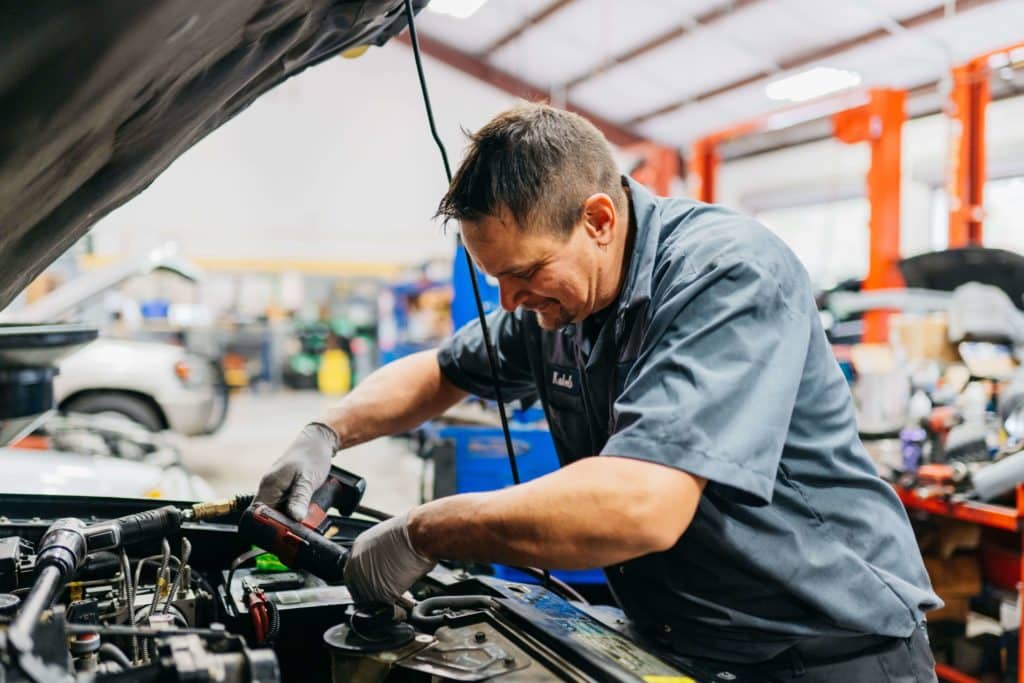All Categories
Featured
When your car overheats, it can seem like a significant emergency situation, however staying tranquil and following the best steps can prevent major engine damage and help obtain you back when driving securely. In this message, we'll explore what to do if your vehicle overheats and offer preventative suggestions to minimize the threat of overheating in the future.
If Your Auto Gets too hot,What to Do. If your vehicle begins to overheat is to pull over to a risk-free spot as quickly as feasible, draw Over to a Safe Location The first and most vital step. Switch on your risk lights and lead your automobile to the shoulder or into a car park. Keeping your automobile running while it's overheated can create extreme damages to the engine, so it's critical to shut the engine off immediately.
Allow the Engine Cool Once you've securely quit, allow the engine to cool. You should never ever try to open the radiator cap while the engine is still hot, as the release of vapor or warm coolant can trigger burns. Wait at the very least 15-20 minutes to enable the engine temperature to go down to a much safer level prior to proceeding.
![]()
Examine the Coolant Degree After the engine has actually cooled, inspect the coolant degrees by inspecting the tank or radiator. Leading it off with a combination of coolant and water (as defined by your automobile's supplier) if it's low. Constantly make use of care when opening up the coolant tank, as pressure may have accumulated.
Try To Find Visible Leaks While you wait for the engine to cool, aesthetically inspect the radiator, tubes, and coolant reservoir for any kind of noticeable leakages or cracks. A dripping radiator or pipe is an usual root cause of overheating. If you find a significant leakage, it's far better to call a tow solution than threat driving further and triggering additional damage.
Reactivate the Engine After enabling the engine to cool and guaranteeing the coolant is complemented, begin the engine and check the temperature level scale. If the temperature level proceeds to rise quickly, it's best to close the engine off and require roadside help or a tow to the nearest technician.
![]()
How to stop Getting Too Hot in the Future. Regularly Check Coolant Levels One of the easiest methods to stop getting too hot is by maintaining the best level of coolant. In time, coolant can vaporize, so frequently inspect the coolant levels in the reservoir. Reduced coolant degrees can cause the engine to get too hot swiftly, so top it off as required.
Check the Radiator The radiator plays an essential function in keeping the engine cool. Periodically examine the radiator for any kind of clogs, dust, or particles that might obstruct air flow. If you notice any indicators of damage, such as corrosion or leakages, have it fixed or replaced immediately.
The thermostat controls the flow of coolant, while the water pump flows it with the engine. If either part is defective, it can avoid proper cooling.
Flush the Air conditioning System With time, coolant can deteriorate and become ineffective, triggering an accumulation of debris in the system. Purging the air conditioning system every 30,000 miles, or as advised in your vehicle's manual, assists to get rid of any kind of sludge or accumulation and makes sure the cooling system is operating properly.
Display the Problem of the Hose pipes The hose pipes in your automobile's air conditioning system can wear or crack with time. Inspect the pipes for any kind of indicators of wear, such as protruding, fractures, or leaks, and change them if needed. Avoiding coolant leakages can go a lengthy means in avoiding overheating.
![]()
Drive Sensibly Hostile driving, such as increasing rapidly or driving at broadband, puts added pressure on your engine and its cooling system. Attempt to drive at modest speeds, specifically on warm days or when driving on steep inclines, to lower the possibilities of overheating.
Stay Clear Of Straining Your Car Lugging excessive weight in your vehicle puts anxiety on the engine and air conditioning system. Constantly bear in mind your vehicle's weight limitation, specifically if you're carrying hefty tons, towing a trailer, or driving long distances in warm climate.
Final thought. A getting too hot automobile can be a frightening experience, however recognizing how to react and avoid it can save you time, money, and possible engine damages. Constantly examine your coolant levels, inspect key parts like the radiator, thermostat, and tubes, and comply with a routine maintenance routine. By remaining on top of your automobile's air conditioning system, you can minimize the threat of getting too hot and appreciate a smoother, more secure driving experience.
If Your Auto Gets too hot,What to Do. If your vehicle begins to overheat is to pull over to a risk-free spot as quickly as feasible, draw Over to a Safe Location The first and most vital step. Switch on your risk lights and lead your automobile to the shoulder or into a car park. Keeping your automobile running while it's overheated can create extreme damages to the engine, so it's critical to shut the engine off immediately.
Allow the Engine Cool Once you've securely quit, allow the engine to cool. You should never ever try to open the radiator cap while the engine is still hot, as the release of vapor or warm coolant can trigger burns. Wait at the very least 15-20 minutes to enable the engine temperature to go down to a much safer level prior to proceeding.

Examine the Coolant Degree After the engine has actually cooled, inspect the coolant degrees by inspecting the tank or radiator. Leading it off with a combination of coolant and water (as defined by your automobile's supplier) if it's low. Constantly make use of care when opening up the coolant tank, as pressure may have accumulated.
Try To Find Visible Leaks While you wait for the engine to cool, aesthetically inspect the radiator, tubes, and coolant reservoir for any kind of noticeable leakages or cracks. A dripping radiator or pipe is an usual root cause of overheating. If you find a significant leakage, it's far better to call a tow solution than threat driving further and triggering additional damage.
Reactivate the Engine After enabling the engine to cool and guaranteeing the coolant is complemented, begin the engine and check the temperature level scale. If the temperature level proceeds to rise quickly, it's best to close the engine off and require roadside help or a tow to the nearest technician.

How to stop Getting Too Hot in the Future. Regularly Check Coolant Levels One of the easiest methods to stop getting too hot is by maintaining the best level of coolant. In time, coolant can vaporize, so frequently inspect the coolant levels in the reservoir. Reduced coolant degrees can cause the engine to get too hot swiftly, so top it off as required.
Check the Radiator The radiator plays an essential function in keeping the engine cool. Periodically examine the radiator for any kind of clogs, dust, or particles that might obstruct air flow. If you notice any indicators of damage, such as corrosion or leakages, have it fixed or replaced immediately.
The thermostat controls the flow of coolant, while the water pump flows it with the engine. If either part is defective, it can avoid proper cooling.
Flush the Air conditioning System With time, coolant can deteriorate and become ineffective, triggering an accumulation of debris in the system. Purging the air conditioning system every 30,000 miles, or as advised in your vehicle's manual, assists to get rid of any kind of sludge or accumulation and makes sure the cooling system is operating properly.
Display the Problem of the Hose pipes The hose pipes in your automobile's air conditioning system can wear or crack with time. Inspect the pipes for any kind of indicators of wear, such as protruding, fractures, or leaks, and change them if needed. Avoiding coolant leakages can go a lengthy means in avoiding overheating.

Drive Sensibly Hostile driving, such as increasing rapidly or driving at broadband, puts added pressure on your engine and its cooling system. Attempt to drive at modest speeds, specifically on warm days or when driving on steep inclines, to lower the possibilities of overheating.
Stay Clear Of Straining Your Car Lugging excessive weight in your vehicle puts anxiety on the engine and air conditioning system. Constantly bear in mind your vehicle's weight limitation, specifically if you're carrying hefty tons, towing a trailer, or driving long distances in warm climate.
Final thought. A getting too hot automobile can be a frightening experience, however recognizing how to react and avoid it can save you time, money, and possible engine damages. Constantly examine your coolant levels, inspect key parts like the radiator, thermostat, and tubes, and comply with a routine maintenance routine. By remaining on top of your automobile's air conditioning system, you can minimize the threat of getting too hot and appreciate a smoother, more secure driving experience.
Latest Posts
Take Advantage of Special Auto Repair Offers in Chicago at Montclare Auto Repair
Published May 28, 25
1 min read
Secure and Improve Your Home with Weathercraft's Exterior siding Solutions
Published May 25, 25
1 min read
Explore Budget-Friendly Auto Repairs with Montclare’s Monthly Service Specials
Published May 24, 25
1 min read
More
Latest Posts
Take Advantage of Special Auto Repair Offers in Chicago at Montclare Auto Repair
Published May 28, 25
1 min read
Secure and Improve Your Home with Weathercraft's Exterior siding Solutions
Published May 25, 25
1 min read
Explore Budget-Friendly Auto Repairs with Montclare’s Monthly Service Specials
Published May 24, 25
1 min read